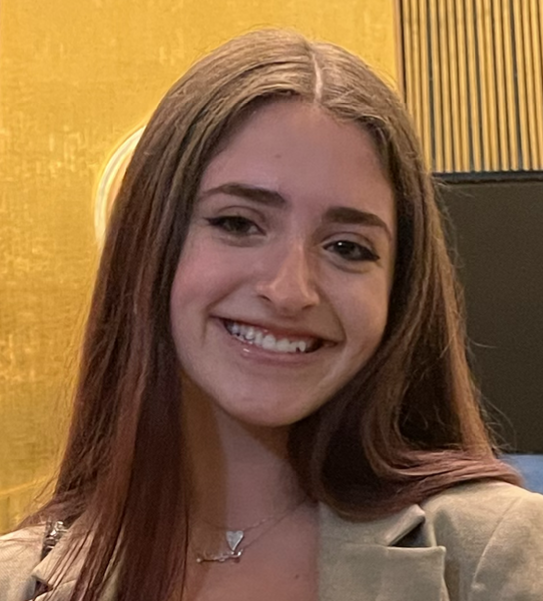A Syrian family reflects on their years of trauma and displacement, and on life in the United States
“I loved living in Syria; we had our own home, and everything was nearby —
especially my kids,” Lamis Al-Hamwy recalled wistfully.
More than 10 years after fleeing Syria, Al-Hamwy, 46, now lives in North Brunswick with her husband and daughter.
In 2017, the United States accepted 3,024 civilian Syrian refugees, according to State Department figures. Among them were Al-Hamwy, her husband Mohamed Kareem, 51, and their youngest daughter Shahd Kareem, 19.
It’s been a long and painful journey.
The family house in Damascus was bombed in 2012 during the Syrian civil war. In the subsequent melee, the couple’s son-in-law was shot.
They thought he was dead, but later discovered that he had survived.
“So many people were killed, after all,” said Mohamed Kareem, recalling that terrible moment.
While trying to make his way home, their son-in-law was then hit by a car.
The couple described his survival as a kind of miracle. He and their daughter now live in Eqypt with their two young sons, ages 3 and 8.
Lamis Al-Hamwy and her family of six had lived in Damascus for most of their lives.
But after the bombing, the family scattered.
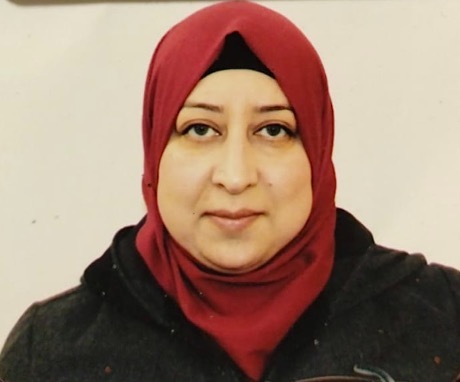
Their only son refused to flee with the rest of the family, and stayed behind in Syria.
Lamis, Mohamed and Shahd settled in the outskirts of Cairo, as the government had encouraged Syrians to seek refuge in Egypt. As of 2022, Egypt was the fifth biggest host country for displaced Syrians in the Middle 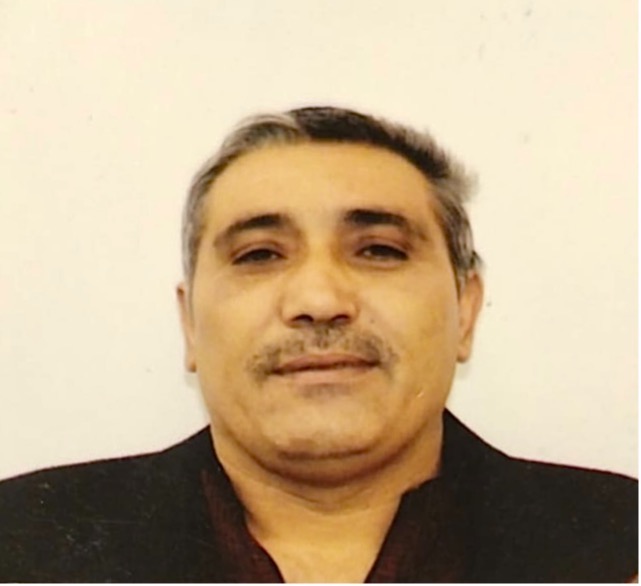 East/North Africa region, following Turkey, Lebanon, Jordan, and Iraq. Egypt is also the only country in the region that does not place arriving Syrians in refugee camps.
East/North Africa region, following Turkey, Lebanon, Jordan, and Iraq. Egypt is also the only country in the region that does not place arriving Syrians in refugee camps.
Lamis Al-Hamwy felt well-treated in Egypt. She appreciated Egyptians’ sense of hospitality.
“The people, the people, the people,” was the aspect of life there she loved most, she said. This was despite being robbed shortly after they arrived (the family said they lost only a few items).
But in Egypt, Mohamed Kareem had difficulty finding a job that paid as much money as he’d earned from his business in Damascus, where he’d owned an auto body shop. He ended up leaving his family in Egypt for one year to search for work in Libya. But he didn’t have much luck there, either. Al-Hamwy and her family sometimes felt unsafe when he was gone, especially after the robbery.
Obtaining Egyptian citizenship was another problem: the process was lengthy and time-consuming. That, in addition to fears for their safety, were among reasons they eventually left for America.
Since both husband and wife had medical issues — Lamis had spinal problems, and Mohamed Kareem needed a knee replacement — the United Nations High Commissioner for Refugees deemed the family qualified to go to the United States.
Lamis, Mohamad and Shahd arrived in New Jersey on March 28, 2017. Another daughter, married at 16 and now 26, initially remained in Egypt with her husband and two sons. The family later moved to Libya, then traveled illegally to Italy, and today live in Sweden.
Life in New Jersey: not all roses
In New Jersey, the family was settled at the Oakwood Plaza apartment complex in Elizabeth, with the help of the International Rescue Committee and the Islamic Circle of North America.
“Honestly, they helped us a lot,” Mohamed Kareem said. ”Lamis had to do a lot by herself because of my knee condition, but we still received help. The [International Rescue Committee] helped with registering Shahd for school, and they helped us with other things, too. With Wayfair, I think, the place for furniture.”
It was still very difficult for them in the beginning, Lamis Al-Hamwy added. None of them spoke English then, so they relied heavily on aid organizations to assist them.
Growing up on the road
Resettling in two foreign countries was especially hard on Shahd. As a shy eight-year-old in Egypt, it took her some time to make friends — though she eventually did make a few friends, as she was still surrounded by people who shared her language and culture.
But New Jersey presented steeper cultural and linguistic barriers. Shahd felt separated from the other children in her neighborhood, and school.
“I didn’t want to pick everything back up and leave again, so it was even harder when we left to a country that was nothing like Syria and nothing like Egypt,” Shahd recalled. “When I was registered for school, they even told me I needed psychiatric help for all the changes I went through.”
Though she never did receive counseling, she believes the adversity toughened her: “Because of that [experience], I am a stronger person today,” she said.
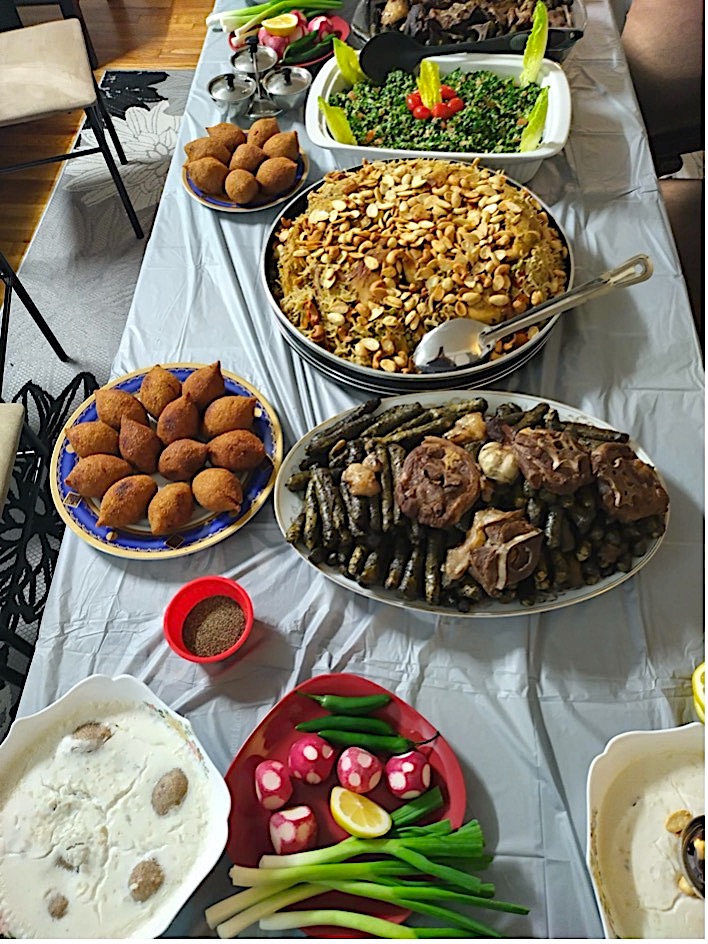
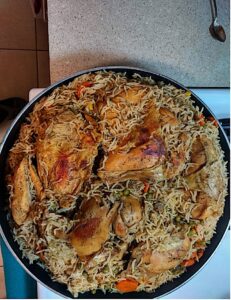
Displaced again
Then in September 2021, flooding from Hurricane Ida forced the family out of their first U.S. home. Their Elizabeth apartment complex was unluckily only a few minutes’ walk from the Elizabeth River, which severely overflowed, inundating parts of the city.
The family’s apartment was damaged, and all of Oakwood Plaza was forced to evacuate. The flooding was so severe that several people in their complex died, Al-Hamwy and Kareem said.
“I remember about five or six people died from the storm,” Mohamed Kareem said. “Everything around us was under water. When we had to leave the apartment, we were not even allowed to go back and get anything, so we left with nothing.”
The Federal Emergency Management Agency helped the family move into a hotel in Linden, where they lived for six months. The aid organization Masjid Al-Wali of Edison also helped.
Next they were resettled in an apartment in North Brunswick, where they’ve lived since early 2022.
Recently they received some welcome news: their American citizenship had come through.
Lamis Al-Hamwy was excited to have the chance to travel back to Egypt at last, in the summer of 2023, to visit her grandchildren and eldest daughter.
“We have our citizenship now, and we are very happy; I can see the rest of my family again,” Al-Hamwy said, smiling broadly. Family ties are what she misses most from her life in Syria and Egypt.
Now Lamis and Mohamad know only a few people back in Syria, including their son, now 30, and several distant relatives. Everyone else they knew fled abroad – to neighboring countries, to the United States or to Europe.
Shahd has just been admitted to Rutgers University, and is beginning studies related to medicine. Lamis Al-Hamwy has begun a catering business, specializing in Syrian foods.
Mohamed Kareem has been out of work since arriving in the United States. The family receives government financial assistance.
“It took us a lot of hardship to go through before we got here, but we are here now,” Lamis Al-Hamwy said. “I am still grateful to be sitting next to my husband and Shahd.”



